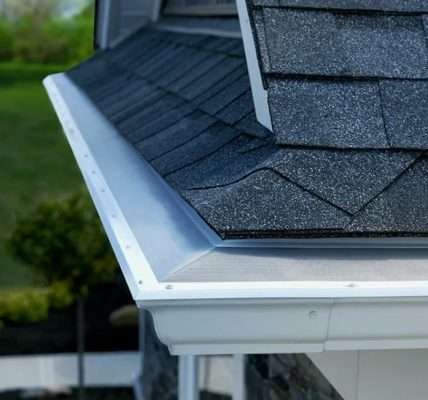Ensuring the safety of your kitchen is paramount, especially when dealing with electricity. Grounding kitchen appliances is a vital aspect of electrical safety, designed to prevent electric shock and potential fires. Understanding the principles of grounding and knowing which appliances require it is crucial for protecting yourself and your family. This article explores the importance of grounding, identifies appliances that need grounding, and provides essential information to maintain a safe kitchen environment.
The Importance of Grounding Electrical Appliances
Grounding, also known as earthing, provides a safe path for electricity to flow in the event of a fault. This prevents the appliance’s metal parts from becoming energized, which could lead to a dangerous electric shock.
- Protection from Electric Shock: Grounding directs fault current to the ground, tripping a circuit breaker or fuse.
- Preventing Fires: A properly grounded system reduces the risk of electrical fires caused by short circuits.
- Ensuring Appliance Longevity: Grounding protects sensitive electronic components from voltage surges.
Which Kitchen Appliances Need Grounding?
Not all kitchen appliances require grounding, but those with metal enclosures generally do. The type of appliance and its power requirements often dictate the need for grounding.
| Appliance | Grounding Requirement | Reason |
|---|---|---|
| Refrigerators | Yes | Large metal enclosure, high power consumption. |
| Ovens/Ranges | Yes | Significant power draw, potential for heat buildup. |
| Dishwashers | Yes | Proximity to water, metal components. |
| Microwaves | Yes | High voltage components, potential for radiation leakage. |
| Small Appliances (Toasters, Blenders) | Potentially, check the plug | If it has a three-prong plug, it requires grounding. |
Understanding Three-Prong Plugs
Appliances equipped with a three-prong plug are designed to be grounded. The third prong is specifically for connecting to the grounding wire in the electrical outlet.
Fact: Never remove or defeat the grounding prong on a three-prong plug. This bypasses the grounding safety feature and increases the risk of electric shock.
What Happens if an Appliance Isn’t Grounded Properly?
If an appliance isn’t grounded correctly, a fault current can energize the metal casing, creating a serious shock hazard. This can be especially dangerous in a wet environment like a kitchen.
- Electric Shock: Contact with the appliance can result in a painful and potentially fatal electric shock.
- Equipment Damage: Ungrounded appliances are more susceptible to damage from power surges.
- Increased Fire Risk: Short circuits can easily lead to fires.
FAQ: Grounding Kitchen Appliances
Here are some frequently asked questions regarding the grounding of kitchen appliances:
- Q: How do I know if my kitchen outlets are grounded?
A: You can use a circuit tester to check if an outlet is properly grounded. These testers are readily available at hardware stores. - Q: Can I ground an appliance to a water pipe?
A: No, grounding to a water pipe is not a safe or reliable method. It’s best to have a qualified electrician install properly grounded outlets. - Q: What should I do if I suspect an appliance is not grounded properly?
A: Immediately stop using the appliance and consult with a qualified electrician. - Q: Can I use an adapter to convert a two-prong outlet to a three-prong outlet?
A: While adapters exist, they may not properly ground the appliance unless the outlet box itself is grounded, often requiring a separate grounding wire attachment. It is best to have a qualified electrician install properly grounded outlets.
Grounding kitchen appliances is not just a suggestion; it’s a critical safety measure that protects you from potential harm. By understanding the importance of grounding, identifying appliances that require it, and ensuring your electrical system is properly grounded, you can create a safe and secure kitchen environment. If you’re unsure about any aspect of your kitchen’s electrical system, it’s always best to consult a qualified electrician. Prioritizing safety will give you peace of mind and help prevent accidents. Remember that electricity should be treated with respect. Regularly inspect your appliances and electrical outlets to make sure they are in good working order and that there are no obvious signs of damage.
But grounding isn’t just about safety; it’s about whispering sweet nothings of stability into the very soul of your kitchen appliances. Think of it as a tiny, invisible tether, anchoring them to the earth, preventing them from succumbing to the chaotic whims of errant electrons. Without it, your refrigerator might hum a lonely, off-key tune, your oven might bake with a rebellious, uneven heat, and your dishwasher might stage a watery protest against the tyranny of ungrounded existence.
Imagine your microwave, a miniature portal to the future where food is instantly warmed. Without grounding, it’s like trying to navigate the cosmos without a proper star chart. Stray electromagnetic energies could leak, turning your leftovers into an unintentional science experiment. Or consider your toaster, a valiant warrior against the cold, hard truth of untoasted bread. Ungrounded, it could become a fiery dragon, breathing sparks and threatening to burn your breakfast dreams to ashes.
Let’s talk about the unseen. Grounding isn’t just about the physical connection; it’s about the energetic flow. It’s about allowing the pent-up frustrations of electricity to find a peaceful release, a return to the source. When an appliance is properly grounded, it’s like a river flowing smoothly to the sea, rather than a stagnant pool breeding discontent. It’s about harmony, balance, and the quiet hum of well-being that permeates a kitchen where every appliance sings in tune.
So, listen closely to the whispers of your kitchen. Does your blender seem a bit… anxious? Does your coffee maker have a tremor in its heating element? These could be signs that something is amiss, that the grounding spirits are restless. Don’t ignore these subtle cues. Embrace the magic of grounding, and let your kitchen appliances live long and prosper, free from the threat of electrical chaos. Remember, a grounded kitchen is a happy kitchen, a safe kitchen, and a kitchen ready to create culinary masterpieces.



